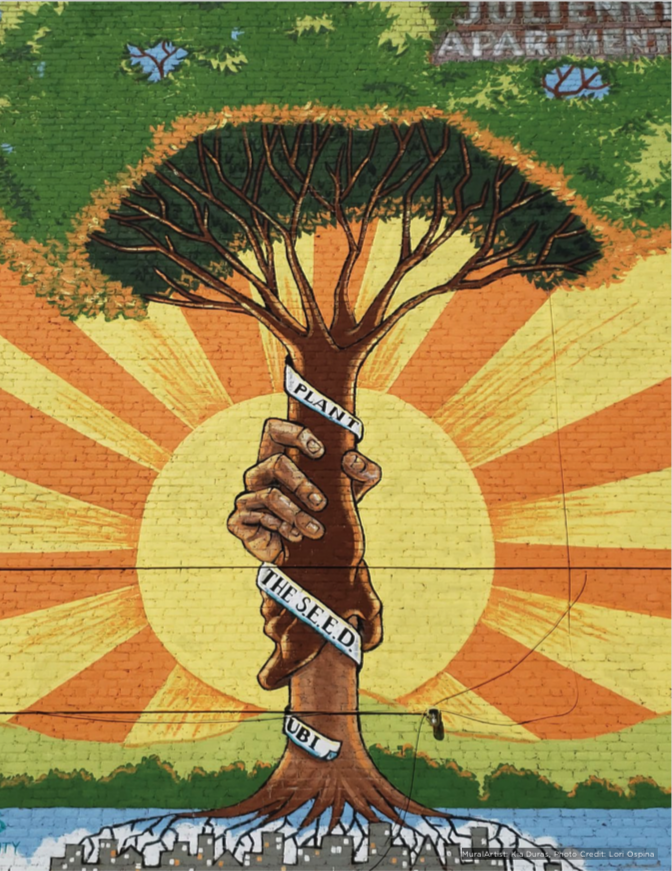LOS ANGELES — November 8, 2018 — Today, the National League of Cities (NLC) and the Stanford Basic Income Lab (BIL) released the first-ever definitive guide for piloting universal basic income (UBI) in cities. The toolkit, entitled “Basic Income in Cities,” is meant to serve as a guide to cities considering piloting UBI, highlighting the history of UBI from the 18th century to present as well as providing case studies and best practices from around the world.
Cities face a number of labor-related challenges, including job automation, precarious work arrangements, economic insecurity and growing inequality. Experts see UBI as a potential solution because it is a cash payment granted to all members of a community on a regular basis, regardless of employment status or income level. It’s also scalable in cities and shares some features with programs like the Federal Earned Income Tax Credit, the Child Tax Credit and Social Security.
“Every person deserves the dignity and safety of having enough money to put food on the table and have a roof over their head,” said Clarence E. Anthony, CEO and executive director of the National League of Cities. “We support the ability of city leaders to pilot – and implement – the kinds of innovative, bold solutions that have helped millions of people.”
Between 1979 and 2013, studies show that earnings have grown 192 percent for the top one percent of wealthiest Americans, but only 46 percent for the bottom 20 percent. And in the next few decades, millions of jobs could be in jeopardy due to automation. Americans are increasingly warming to UBI as a way to curb these detrimental effects.
Research indicates that UBI could serve as the basis for expanded entrepreneurialism, better health outcomes and less precarious working conditions for a wide swath of the workforce.
“Piloting programs like UBI can help us identify much needed solutions to some of the most pressing social challenges our communities are facing,” said Juliana Bidadanure, director for Stanford University’s Basic Income Lab and assistant professor in philosophy in the School of Humanities and Sciences. “UBI in particular has the potential to increase equality and freedom in our social fabric, which is why we partnered with NLC to develop this tool. We want cities that are interested in trying it to have the tools to do so.”
Successful pilots have been launched in Finland, Kenya, India and Canada, and the city of Stockton is planning to pilot UBI in 2019.
Recommendations from the report include:
- Identifying goals of a UBI pilot;
- Choosing stakeholders and partners, and deciding when they should get involved;
- Deciding who should qualify for the pilot;
- Implementing a successful program; and
- Creating a communications team and strategy.
Piloting UBI could also serve an important research purpose, as there’s still limited information about how it affects factors like health, crime, stigma and well-being.
“Cities are uniquely positioned to lead the country forward through innovation and ferocious experimentation,” said Brooks Rainwater, senior executive and director of NLC’s Center for City Solutions. “As we near the 2020s, it is apparent that the nation will need a social welfare system built for this new century and its specific challenges. UBI should be considered within the suite of options that governments can provide to meet the needs of people.”
You can read our full report here.
###
The National League of Cities (NLC) is the voice of America’s cities, towns and villages, representing more than 200 million people across the country. NLC works to strengthen local leadership, influence federal policy and drive innovative solutions. Stay connected with NLC on Facebook, Twitter, LinkedIn and Instagram.
